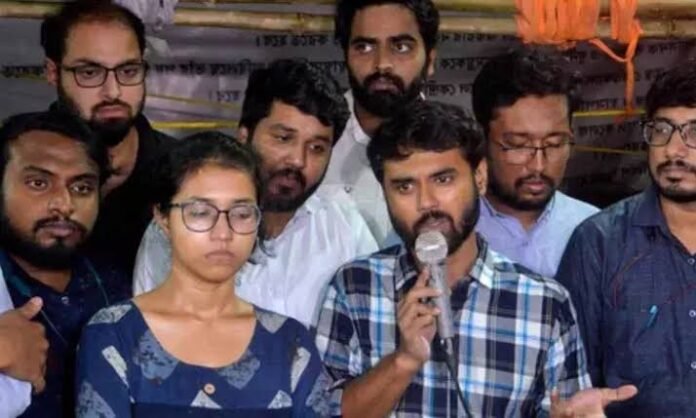In a significant development, junior doctors in Kolkata have called off their 17-day hunger strike following a fruitful meeting with West Bengal Chief Minister Mamata Banerjee. The breakthrough came after the state government assured the doctors of addressing their concerns, including the prevailing “threat culture” at state-run hospitals.
A New Chapter for Junior Doctors
The decision to end the hunger strike was made after a two-hour meeting between the junior doctors and the Chief Minister. Debashish Halder, representing the junior doctors, expressed mixed sentiments, stating that the body language of the state government was not positive, but they were withdrawing their fast-unto-death and Tuesday’s total shutdown in the health sector due to public and parental requests.
Key Outcomes of the Meeting
State-Level Task Force Committee: A committee comprising five state government representatives and five medical community representatives will oversee college-related grievances and health issues.
Student Body Elections: Elections will be held in four months, following consultations with legal experts and state officials.
CCTV Installation: The state government will expedite installing CCTV cameras and security measures in state-run medical colleges as mandated by the Supreme Court.
Threat Culture: Chief Minister Banerjee acknowledged the need to remove threat culture from state-run hospitals.
Reactions from Junior Doctors
The junior doctors remain concerned about existing committee ineffectiveness and demand strengthened internal committees with junior doctor representation. The Chief Secretary assured that the new state-level committee will oversee existing committees and offer recommendations.
Next Steps
The junior doctors plan a mass convention on Saturday to discuss ongoing demands. The state government must provide details on the committee’s functions and ensure timely implementation of agreed-upon actions.
A Long-Standing Protest
The junior doctors initiated a ‘cease-work’ on August 9 following the alleged rape and murder of their colleague at RG Kar Hospital. The hunger strike began on October 5 after nearly 50 days of ‘cease-work’ in two phases. Parents of the deceased doctor visited the agitating doctors at the hunger strike site in Esplanade, urging them to call off the strike.
A Meeting of Minds
Earlier in the day, a 17-member delegation of the medics met Banerjee at the state secretariat, discussing various issues, including the prevailing “threat culture” in hospitals, justice for their deceased colleague and systemic changes in the state’s healthcare infrastructure. Although both sides agreed on the prevailing threat culture, they differed on the underlying forces and situations that promote it.
A Call for Transparency
Debashish Halder expressed surprise that the meeting was held live, despite their demand for live streaming being turned down. “We have repeatedly placed 10 demands. But on the issue of threat culture, the CM got angry asking why she was not informed. There has been an attempt to silence us when the issue of threat culture cropped up.”
A Victory for Junior Doctors
Student polls will be held in medical colleges in March next year, which is a victory for the junior doctors. The Chief Minister promised to look into their demands, requesting the junior doctors to convince their colleagues to withdraw the fast and rejoin duties.
A New Beginning
The breakthrough in Kolkata marks a new beginning for junior doctors and the state government. With assurances of addressing concerns and implementing changes, the junior doctors have called off their hunger strike. The road ahead will require cooperation and commitment from both parties to ensure a safer, healthier environment for medical professionals and patients alike.
Here are opinions from RG Kar protesters :
Dr. Subhodip Chakraborty: “We’re cautiously optimistic. The state government’s assurances are promising, but implementation is key. Removing threat culture requires concrete actions, not just promises.”
Dr. Indranil Ghosh: “Student polls are a significant victory, ensuring democratic representation. However, we’ll continue protesting until tangible changes address healthcare infrastructure issues.”
Dr. Jayanta Banerjee : “Transparency is crucial. We demand public updates on investigations and actions against those responsible for the alleged rape and murder.”
Junior Dr. Pooja Chakraborty: “The state-level task force committee must prioritize junior doctor representation. Existing committees’ ineffectiveness fuels our skepticism.”
By Anusmita Bhatta
Reporting for True to Life News Media
